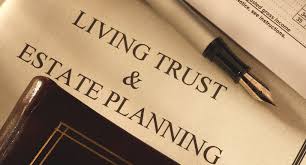Blog
How Michigan Courts Decide Child Custody: A Step-by-Step Guide
When parents separate or divorce, child custody often becomes the most emotional and confusing issue. Many parents want to understand how Michigan courts decide child custody and what actually matters to a judge. While every family’s situation differs, Michigan law follows a structured process that…
What Is an Established Custodial Environment in Michigan?
If you face a custody dispute in Michigan, you will hear one phrase again and again: established custodial environment. Parents see it in Friend of the Court recommendations, referee findings, and motions for temporary orders. The phrase matters because it affects how hard it is…
Do I Need a Probate Attorney in Allegan County, Michigan?
If you recently lost a loved one, you may wonder whether you need a probate attorney in Allegan County, Michigan. Many families try to handle probate alone, only to discover unexpected court requirements, delays, and legal risks. Probate involves strict Michigan laws, court rules, and…
Estate Planning in Michigan: What to Review in the New Year
Estate planning in Michigan is not something you set and forget, especially as you head into a new year with changing laws, finances, and family needs. The beginning of a new year often inspires reflection and planning. Many people focus on finances, health goals, or…




